Developing observation skills Worksheets for Kids
9 filtered results
-
From - To


Sink or Float Printable
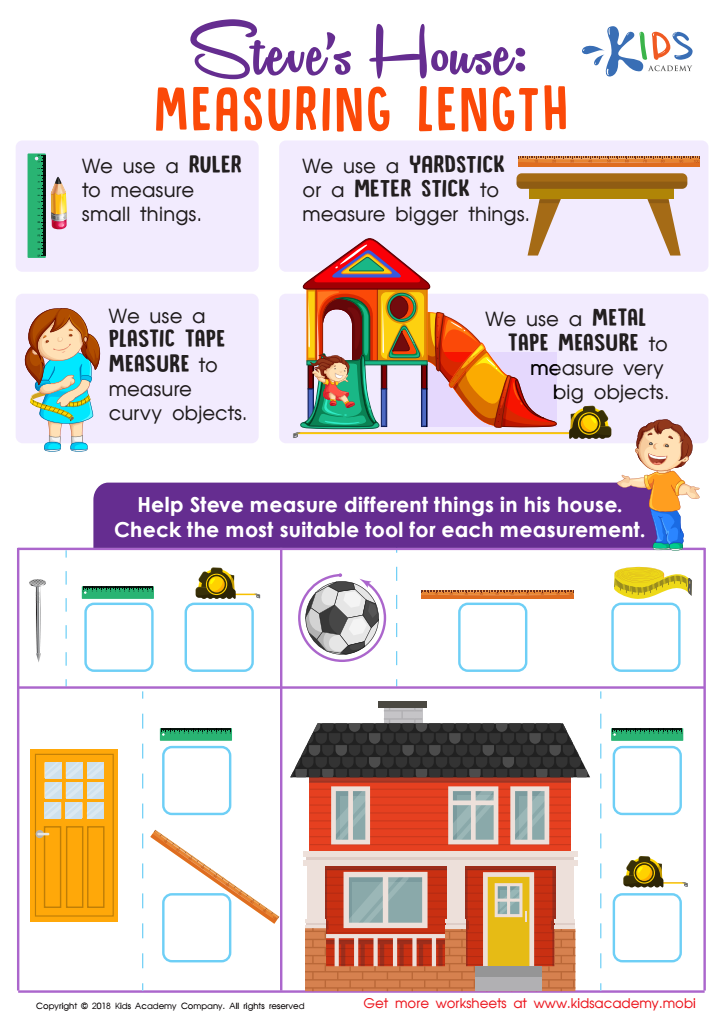

Steve's House: Measuring Length Worksheet
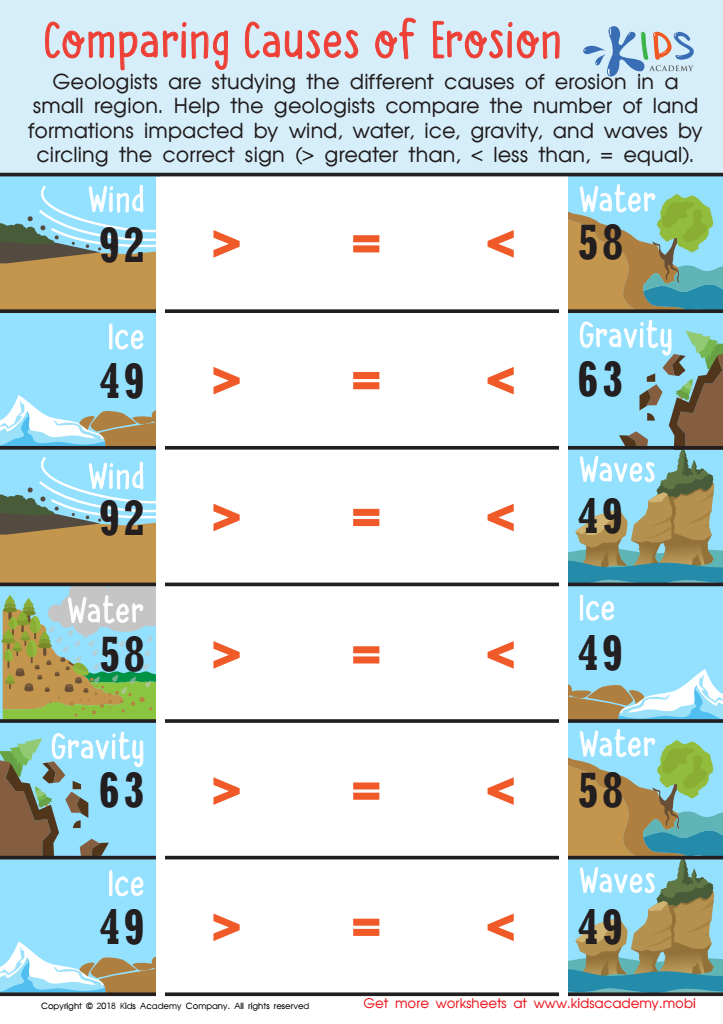

Comparing Causes of Erosion Worksheet
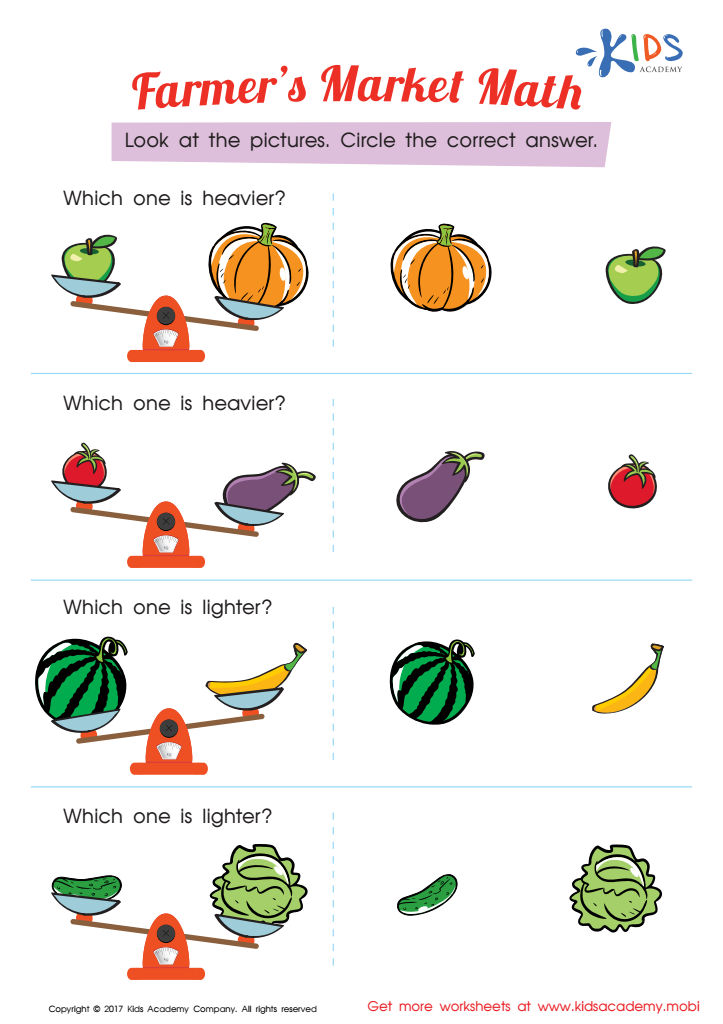

Which One Is Heavier Worksheet


Light and Sound: Assessment 2 Worksheet
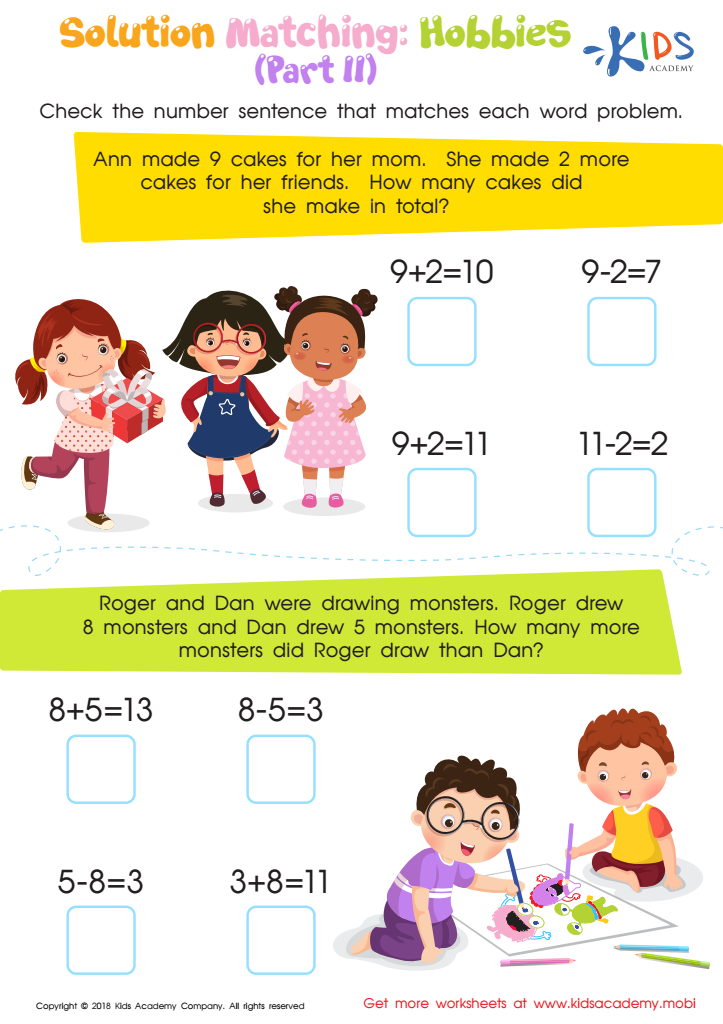

Solution Matching: Hobbies. Part 2 Worksheet
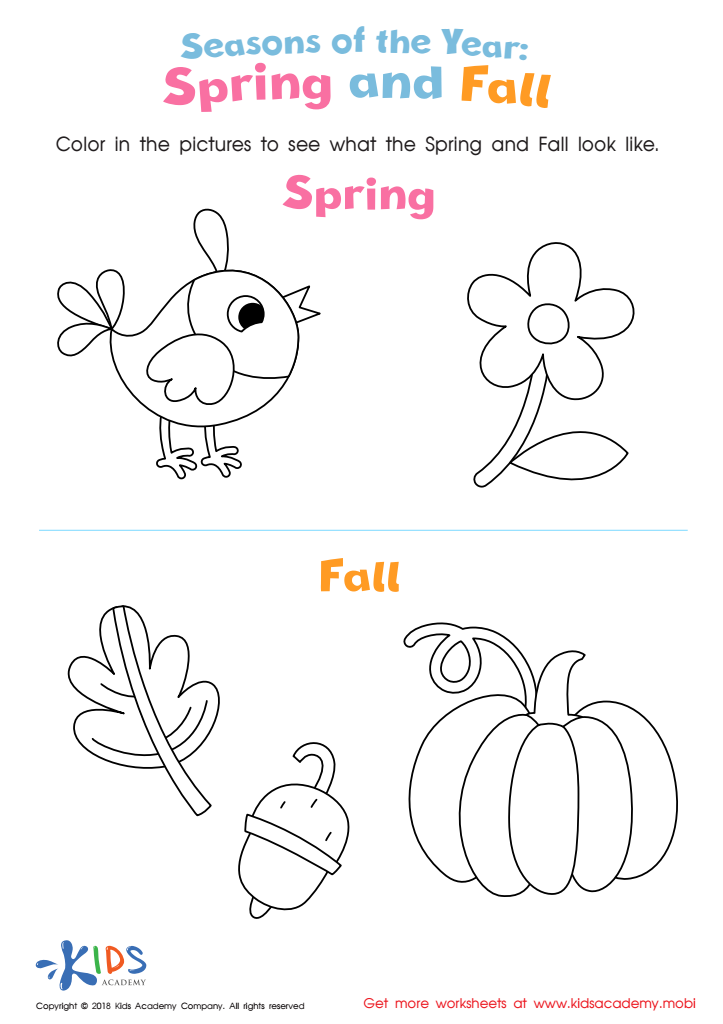

Spring and Fall Worksheet
Question/Answer
What does the Developing observation skill mean when it comes to Grade 1 Physical Science learning?
Developing observation skills in Grade 1 Physical Science involves teaching students to carefully notice and describe the properties and changes of objects or materials in their environment. It encourages curiosity, critical thinking, and the foundational ability to gather data through the senses, crucial for scientific inquiry and understanding basic concepts in physical science.
How to train the Developing observation skill in Grade 1 students learning about Physical Science?
To train Grade 1 students in developing observation skills in physical science, engage them in interactive experiments and nature walks. Encourage them to note colors, shapes, movements, and changes in simple experiments or outdoor observations. Use guided questions to help them describe and think about what they observe. Incorporating visual aids and tangible objects will enhance their learning experience.
What are some effective activities to train students’ Developing observation skill when teaching them about Physical Science?
Effective activities to train students' observation skills in Physical Science include conducting simple experiments that require careful measurement and recording, using interactive simulations to explore phenomena, engaging in outdoor observational activities like nature walks to study ecosystems or physics in action, and employing inquiry-based learning tasks where students hypothesize, test, and observe outcomes, thereby sharpening their ability to notice and interpret scientific details.#$%

 Assign to the classroom
Assign to the classroom

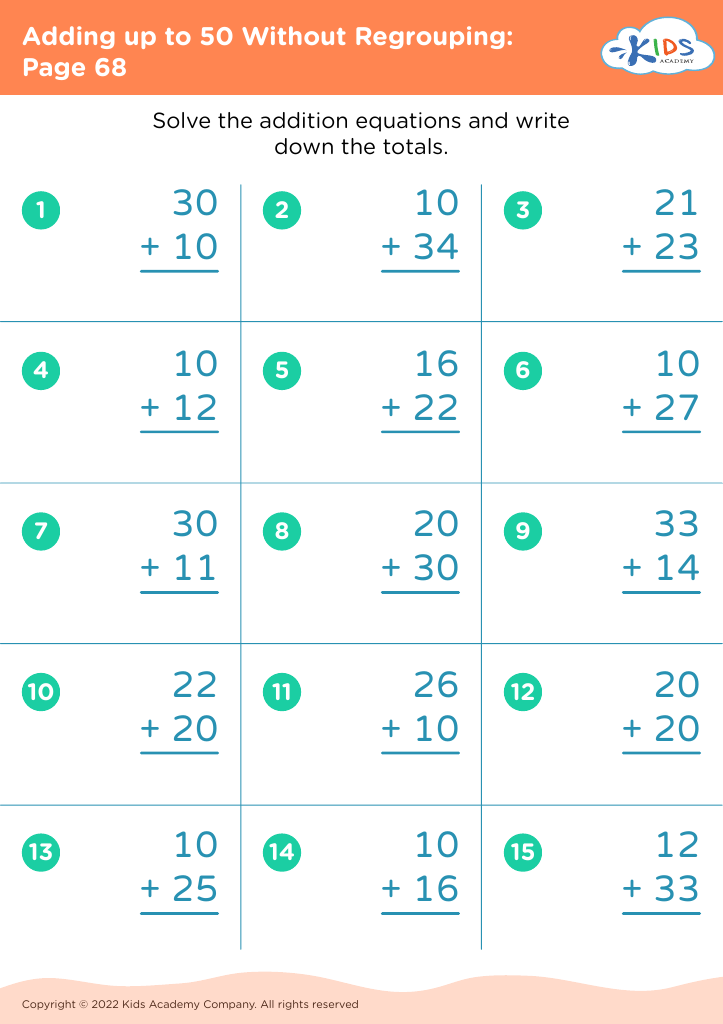




.jpg)







